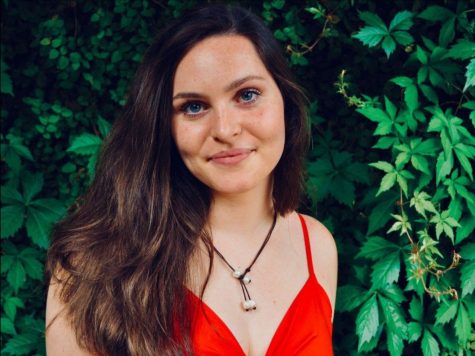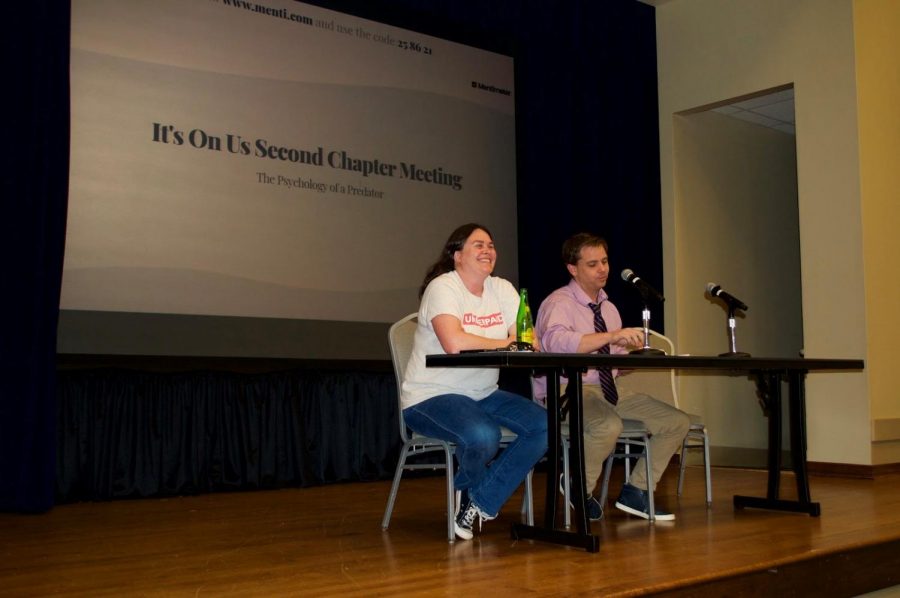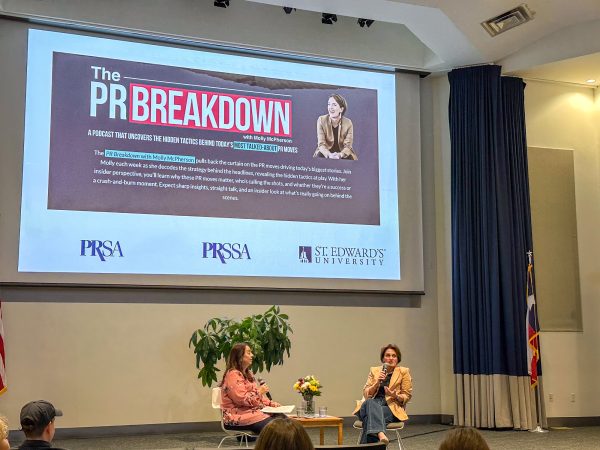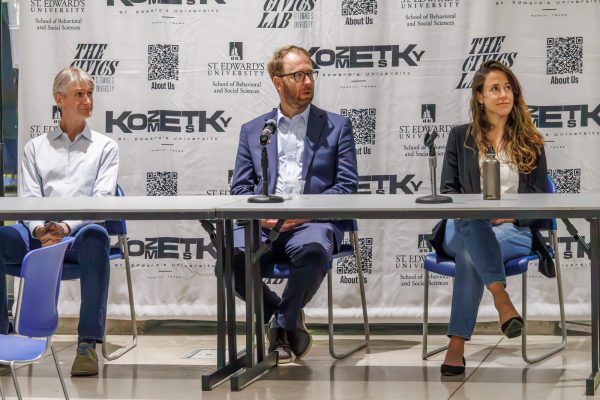Psychology behind predators and safety discussed at second It’s On Us meeting
Professor of psychology, Delia Paskos, and associate professor of social work Adam McCormick answer students questions on a panel at the second It’s On Us chapter meeting, which addressed topics such as the psychology of a predator.
Trigger Warning: Subjects of sexual predation and abuse may be traumatic for some.
On March 11, It’s On Us held their second chapter meeting of the semester, where experts from St. Edward’s University and local professionals gathered to educate students on the psychology of a predator. The panel was hosted by It’s On Us president, Sierra Rozen, and featured Professor Delia Paskos and associate professor of social work Adam McCormick.
Paskos has been teaching psychology at St. Edward’s for the last 10 years. She explained that when she came to St. Edward’s, she was asked to teach a class on the violent sex offender. While learning about the subject, Paskos explained that she became paranoid, so she started taking Brazilian jiu jitsu self-defense.
“I felt it was really empowering for myself and I thought maybe I should do this for my students too to make them feel better, more confident and more aware of their surroundings. I decided to introduce a self defense lab into my class,” Paskos said.
McCormick then explained that his background comes from his history of social work and child welfare. He worked with survivors as well as perpetrators of childhood sexual abuse.
“I’ve done a lot of teaching on control tactics and strategies around childhood sexual abuse research. My main work is around LGBTQ+ experience in the foster care system looking at their experience as survivors,” McCormick said.
Both experts discussed their experience in learning about predators in order to better teach students of psychology and criminology. Paskos debunked some common misconceptions about sexual predators as well, explaining that “there’s a stereotype of predators, like the creeper in the van driving around, when the reality is that they’re all around us. They are every color, every shape and every nationality.” Even though we all learn about the importance of ‘stranger danger’ growing up, unfortunately, these traumatic experiences usually come from those we know.
The fact about predators, Paskos explained, is that “the things that go on in the mind of a predator are the same things that go on in the minds of those who are not, they just have mal[icious] intent.” For example, when we want to take an action, usually we think about it first and process it. However, the difference with predators lies within their motives.
“Different types of offenders are motivated by different things, sometimes its power and control, sometimes it’s just opportunistic. What we see across the board is low self-esteem, histories of either attachment issues or sexual or psychical violence, heightened masculinity,” Paskos said.
McCormick added to this point, explaining that in his work with juvenile offenders, many of them had attachment issues and childhood trauma or often a combination of the two. He spoke about how if young people do not receive the compassion they deserve while growing up, their brains do not make key connections, which can become very isolating and dangerous.
“What we know with kids who experience childhood maltreatment is they are always constantly trying to read people and reduce threat, and if you have to spend your childhood trying to prevent threat, that’s what you become good at. That’s what we see with a lot of predators; they are very manipulative, cunning and conniving,” McCormick explained.
A key takeaway for students who attended this chapter meeting is that when it comes to the nature versus nurture debate, it is usually a combination of both. Students were also reminded by Paskos that, “No matter what you’re doing, what you’re wearing, how intoxicated you are, it is never okay for someone to do something to you that you don’t want done, period. And it’s never your fault.”
Resources:
HCC: (512) 448-8686, Johnson Hall
SAFEAlliance Hotline: (512) 267-SAFE

Hey y'all! My name is Gracie Watt and I am a junior majoring in communication with a focus in journalism. I'm proud to be the Photo Editor for Hilltop...









